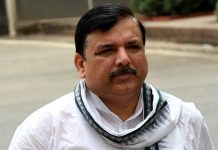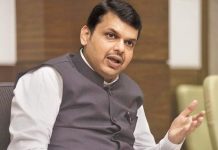
What was life like before theatre?
A Kashmiri Pandit by birth, I was brought up in a small town called Hoshangabad in Madhya Pradesh. As a swimmer, I represented my state at national level and got admission in the Sports Authority of India, Bhopal. It was in Bhopal that I got introduced to theatre during a trip to Bharat Bhawan. I began to wonder if I can live that life. I was completely blown away by it, so much so that I never stepped into the swimming pool again!
Can you recall an experience that was enriching, but you would never want to live through it again?
During my initial days in Mumbai, I was under severe financial constraints and everything about films was new to me. My naivety and desperation to earn money made me do a role in the Sunny Deol starrer Champion. On reaching the sets, I realised that I was working as a junior artist. Sitting in a corner in a humid room for hours to collect a meagre sum was a very humiliating experience. But at the same time, it taught me something important. If it wasn’t for that episode, I wouldn’t have realised the immense worth of junior artists and other subordinates.
Have your aspirations changed over time?
As a child when I saw airplanes flying over my town, I used to wave ecstatically. Later, when I sat inside an aircraft for the first time, I stood up and almost danced with joy. Now it doesn’t make much difference. The emotion of aashcharya diminishes with every passing experience and gradually people have to hunt for things to beat normalcy.
Why is Hindi theatre often referred to as a dying art?
When people tell me this, I often reply ‘Even if it is, let it die!’ Firstly, there are a lot of people doing interesting themes. So it isn’t ‘dying’. Secondly, even it it were, then let it die, because it will make space for something new. I don’t do theatre to save it. I do it for the sheer love and fun of it. An art form doesn’t require your pity.
How important is money?
I come from a vulnerable family and almost everything I’ve done is against the scheme of minting money. Having done experimental theatre for the past decade, I’ve been living hand-to-mouth. But that does not bother me. I directed Hansa with just 12,000 in my pocket. If you want to earn money, it will consume your time and mind. So, money is an artistic choice.













